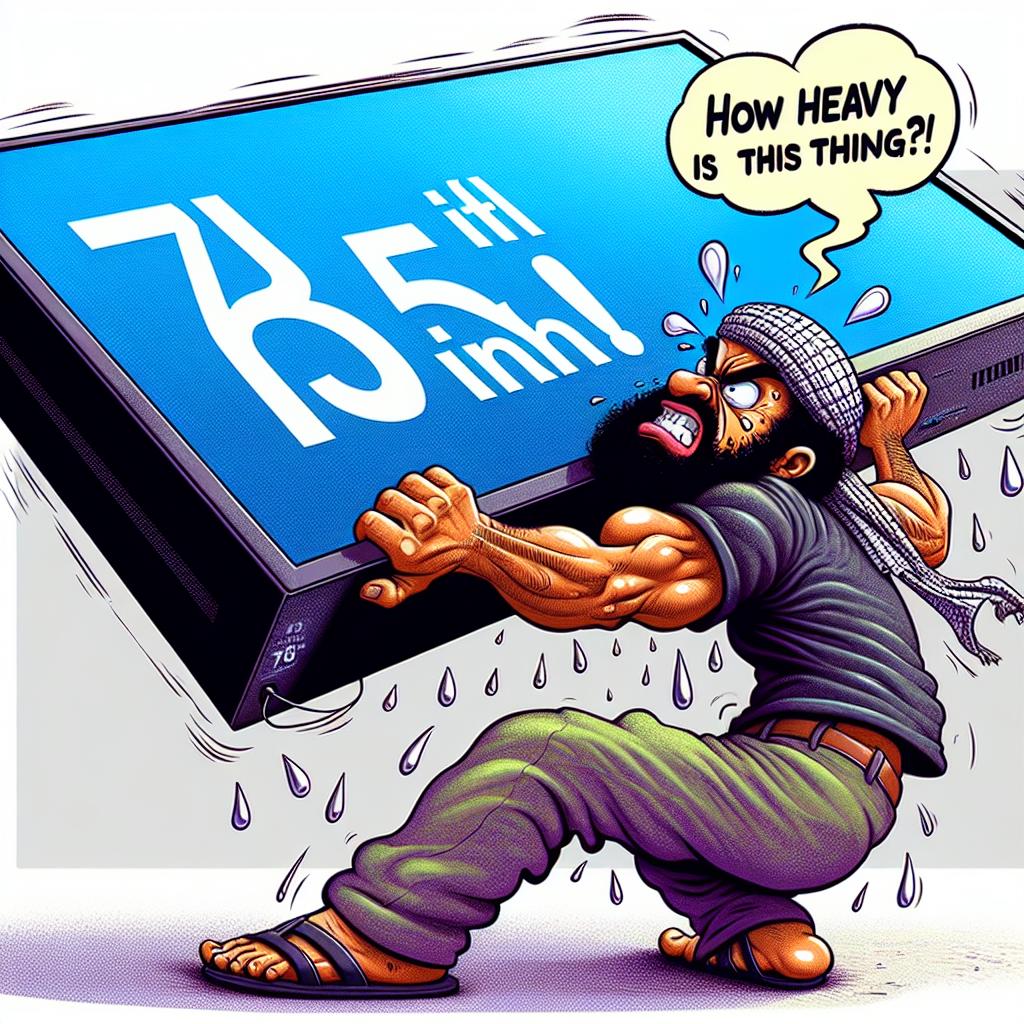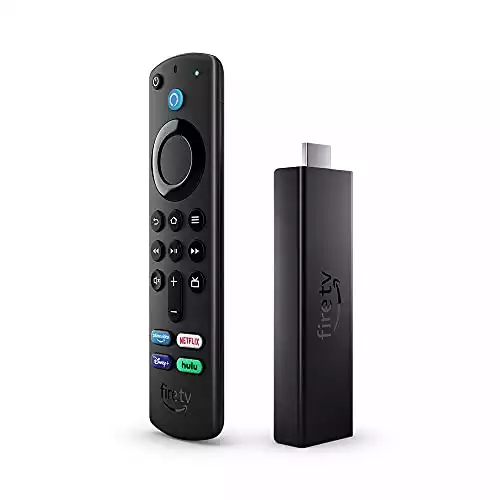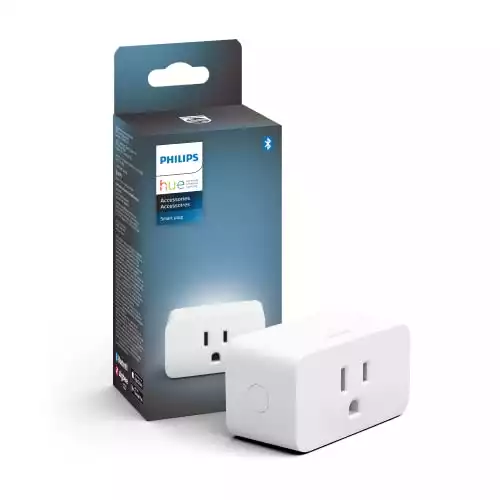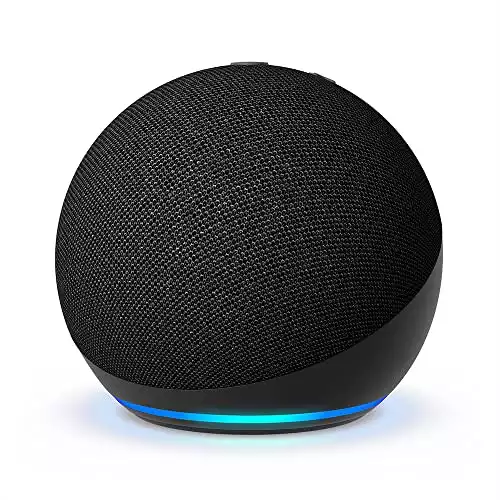This page may contain affiliate links. Please read my disclosure for more info.
TV upgrades rock, but remember that extra size also comes with extra pounds. In this article, we’ll look at the weight of 75-inch TVs, including examples from common TV brands and how your TV’s weight affects your ability to mount it.
How Much Does the Average 75-Inch TV Weigh?
The typical weight of a 75-inch smart TV is about 90 pounds. Nearly all TVs of this size weigh between 80–110 pounds, although there are a few outliers, including some as light as 62 pounds.
When looking at the weight of your TV, there are three different weights you might see:
- Weight without stand
- Weight with stand included
- Shipping weight
The weight without a stand is most crucial for mounting your TV. Every mount has a weight limit, and putting too heavy a TV on it can result in damage to your TV, your mount, or your wall. This is the weight we’ll use throughout this article.
The weight with a stand will be important if you want to place your TV on a piece of furniture with a low weight limit. If you don’t see this number listed separately, just use the weight without stand and add about 1–2 pounds. TV stands tend to be very lightweight.
The shipping weight includes the box and packaging. You don’t need to worry too much about this unless you have to pay by weight for shipping or carry your TV home from the store.
Weights of Common 75-Inch TV Models and Brands
The weight of a TV varies by both brand and model. Some brands are known for their sturdy, feature-filled TVs, but that often comes with as much as 10-15 pounds of extra weight.
Other brands, like TCL, go out of their way to make the lightest-weight TVs possible. That’s especially great if you plan to mount the TV by yourself.
| 75-Inch TV Model | Weight (pounds) |
|---|---|
| Amazon Omni Series Fire TV | 62.2 |
| TCL Class 5-Series TV | 65.3 |
| LG 99 Series TV | 84.2 |
| Hisense A6 Series TV | 84.9 |
| Vizio P-Series TV | 104.6 |
| Sony Z9K Series TV | 108.2 |
| Samsung QN900C Series TV | 123.7 |
How Much Do Other Size TVs Weigh?
Typical 50-inch TVs weigh between 20–35 pounds. That’s about the smallest-size TV most people use for a home theatre setup. But if you want to go even smaller, you can find a 32-inch TV as light as 8 pounds!
On the other hand, maybe you want to max out your entertainment with an 85-inch TV. That’s about as large as you can get without resorting to a projector. Your giant TV will probably be 100–120 pounds
| TV Size (inches) | Average weight (pounds) |
|---|---|
| 32 | 8–12 |
| 43 | 13–25 |
| 50 | 20–35 |
| 55 | 25–40 |
| 60 | 35–45 |
| 65 | 35–50 |
| 70 | 55–70 |
| 75 | 80–110 |
| 85 | 100–120 |
Wall Mounting a 75-Inch TV
Even the heaviest 75-inch TVs can be mounted on the wall. Most quality wall mounts are rated for TVs up to 85 or even 90 inches.
When you buy a mount, it will specify a maximum-rated weight and size. As long as your TV’s size is in those ranges, you’ll be fine.
Wall mounts rated for 75-inch TVs typically have a weight cap of about 100 pounds, which is more than enough. And if your mount is rated up to 85 inches, it will often hold up to 150 pounds with no problem.
What’s the best wall mount for a 75-inch TV?
Aside from making sure your TV matches the size and weight requirements, the main things to look for are:
- The ability to level the TV after mounting.
- Underwriter Laboratories (UL) certification.
- A slim profile, with minimal space between the mount and wall.
I also tend to stick with mounts from Sanus, Mounting Dream, or another high-quality brand. With that in mind, here are a couple of great options for mounting a 75-inch TV:
Both of those mounts are rated for up to 90 inches and 150 pounds. That extra range is great if you ever plan on upgrading your TV; wall mounts are not fun to replace.
What’s Next?
Your TV’s weight probably won’t be a major factor in your buying decision. For some people, though, a lightweight TV is a huge advantage, especially if you plan on installing it yourself. Fortunately, there are plenty of lightweight Android and other smart TVs to choose from.
Once your TV is bought and mounted, it’s time for the real fun to begin. Your smart TV needs internet access for most of its apps to work, but there are plenty of options to get going, even if you don’t have Wi-Fi. Some smart TVs have Bluetooth, and you can even connect your TV to a hotspot. You can even cast your phone to your TV, and we’ve got guides at Smart Geek Home to help with all of that.
|
N/A
|
$34.99
|
$49.99
|

Zachary has spent 12 hears in the tech industry focusing on automation, analytics, and cybersecurity. His passion is tech education; he uses his industry expertise and STEM PhD to break down complicated concepts into simple step-by-step guides. When he’s not writing or coding, you can find him binging anything Star Trek or Marvel or reading far too many sci-fi novels.




